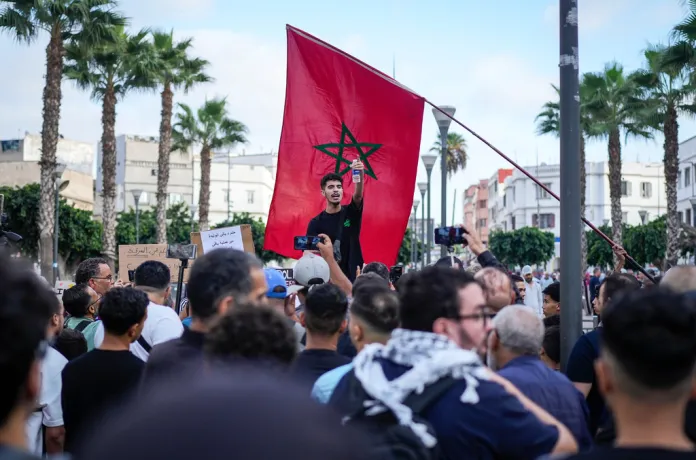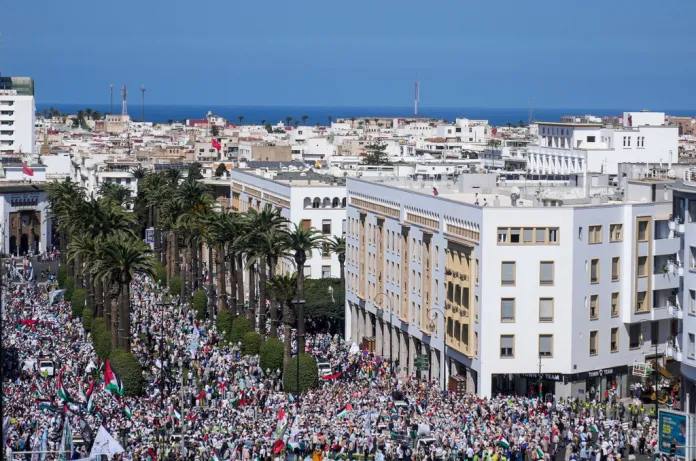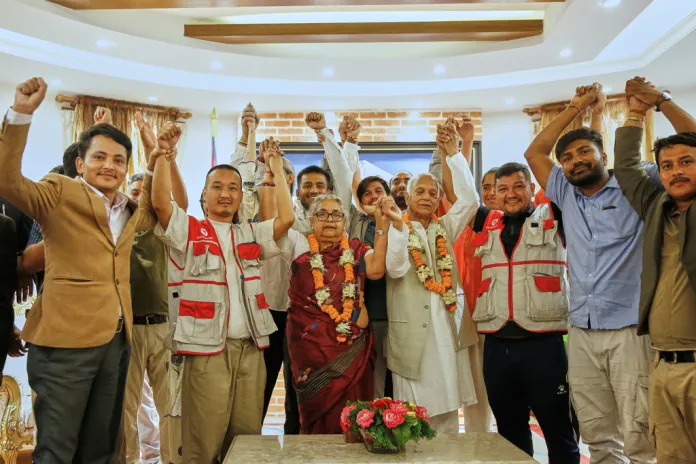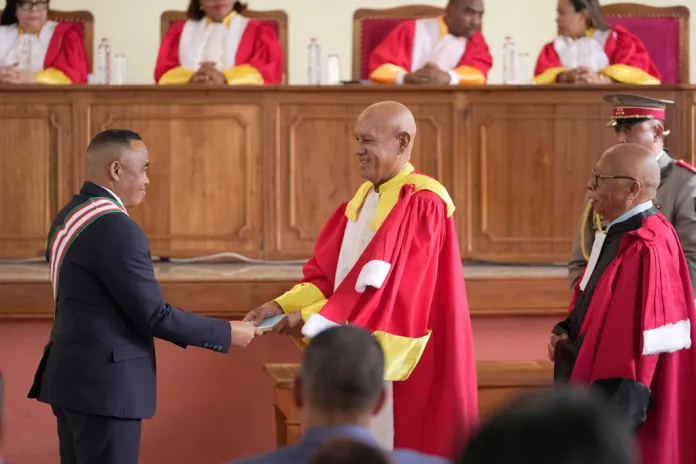Youth-led protests in Morocco have fizzled out as government agencies wrangle thousands of activists for prosecution.
Over 2,400 people are now facing criminal charges of “rebellion as part of a group,” “incitement to commit crimes,” and “assaulting law enforcement officers,” with approximately 1,400 currently in detention.
Thus far, sentences for convicted suspects have ranged from one to 15 years, depending on the individual’s circumstances and offenses.

Presidency of the Public Prosecutor’s Office magistrate Hassan Farhan insisted to reporters on Tuesday that despite accusations of suspects giving statements under duress, those arrested are being given a fair judicial process “in strict compliance with legal procedures.”
“Contrary to what some are deliberately circulating, there were no coerced statements,” he told the press, according to Moroccan news outlet Assahifa Al Ousbouia.
Farhan claimed that of the thousands of activists arrested at the protests, 3,300 people have been released from police custody. Due to the demographics of the movement, many of those arrested were not legal adults.
The protests were organized to advocate reforms to the country’s uninspiring healthcare and education systems.
King Mohammed VI tipped his cap to the disgruntled youths’ concerns in his address before the opening of parliament earlier this month, but didn’t explicitly recognize the unrest.
“We have set as priorities … the creation of jobs for young people, and the concrete improvement of the education and health sectors,” he said.
Support for the Palestinian Territories was also intrinsically tied to the popular unrest, with anti-Israeli activists incensed by the Moroccan government’s normalization of relations with Israel.
“The Moroccan government has struggled to address these growing expectations. Its political discourse — rooted in notions of order, sovereignty, and reform — stands in sharp contrast to the language of Gen Z, which highlights dignity, solidarity, and justice,” wrote Isabel Buck, Head of Research and Scientific Coordination at the Arab Center for Research and Political Studies in Paris, in an analysis of the protests.

“For Morocco, the survival of the regime will hinge less on repression or redistribution than on its capacity to restore meaning to the social contract with its citizens,” Buck continued. “Generation Z has already transformed the grammar of protest: it communicates through networks rather than hierarchies and demands accountability rather than benevolence.”
The North African nation is only the latest battlefield of the worldwide “Gen Z” protests — a growing trend of youth revolts in developing nations organized via the internet.
The protests are only ideologically connected and do not have formal connections with one another regarding organization or goals.
“Gen Z” demonstrations are immediately identifiable by the use of pop culture markers such as a modified pirate flag from “One Piece,” the bestselling Japanese manga series of all time.
The flag is flown by the series’ main characters, a band of pirates known as the “Straw Hats.” That symbol, a skull and crossbones donned with either its standard straw hat or alternative headwear, is becoming increasingly prominent at protests around the world.
Michelle Gavin, a senior fellow at the Council on Foreign Relations, previously told the Washington Examiner that the internet is crucial to understanding the genesis and execution of these protests.
“I think social media is essential, in part because it’s also part of the way young people are being inspired by some of these other movements around the world,” she told the Washington Examiner. “It’s changing one’s sense of relative deprivation.”

Similar Gen Z protests have broken out across Africa and Asia with mixed results.
Widespread civil unrest in Nepal forced the collapse of the nation’s government. Former chief justice Sushila Karki was elected as interim prime minister via an election on the popular Youths Against Corruption channel of social media service Discord.
It is believed to have been the first social media election of a head of government in history, with a more formal election for a long-term leader set to take place in March.
GEN Z SOCIAL MEDIA REVOLUTIONS OVERTURNING GOVERNMENTS IN ASIA AND AFRICA
Similarly, the government of Madagascar was overthrown during weeks of civil unrest led by Gen Z activists, culminating in President Andry Rajoelina’s flight from the island nation.
The Malagasy youths who instigated his downfall might not be thrilled with the outcome. However, the president was deposed by a military takeover led by Col. Michael Randrianirina.
Randrianirina suspended the constitution and the High Constitutional Court, offering the vague promise of a “referendum” to be held in two years.
Rajoelina has been stripped of his Malagasy citizenship. He still holds French citizenship, which was formerly highlighted by critics as unbecoming for a head of government.

The military’s newly-appointed prime minister, Herintsalama Rajaonarivelo, has issued a decree revoking the citizenship of anyone who refuses to relinquish their claims to foreign passports.
The African Commission on Human and Peoples’ Rights said in a statement on Wednesday that it has “deep concern about this situation [in Madagascar] and recalls the importance of respecting constitutional order and the principles of democratic governance.”
Gen Z protests in Sri Lanka and Bangladesh have also led to the overthrow of their national governments.
